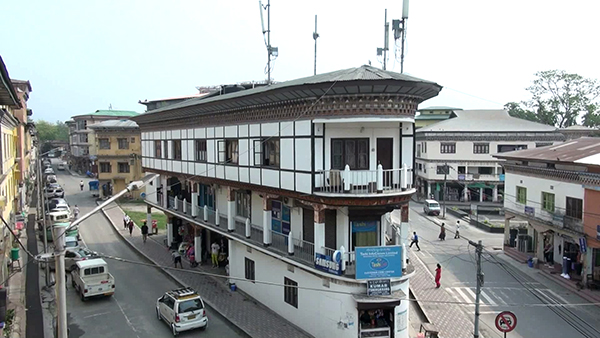 Further strengthening the safety measures and protocols, the Sarpang district has now made it mandatory for all frontline workers and high-risk populations to produce COVID-19 test cards to their respective monitoring teams. The card will contain the details of the test taken by individuals and include the next expected test date.
Further strengthening the safety measures and protocols, the Sarpang district has now made it mandatory for all frontline workers and high-risk populations to produce COVID-19 test cards to their respective monitoring teams. The card will contain the details of the test taken by individuals and include the next expected test date.
This is being done after a monitoring team, observed non-compliance of safety protocols in the town and among the high-risk populations despite the worrying situation in other high-risk areas and the neighbouring border towns.
The Medical Superintendent of the Central Regional Referral Hospital in Gelephu, Dorji Tshering, said that without a test card, it was a challenge for the surveillance team and Task Force team to find out when and what type of test was done on frontline workers and high-risk population.
The high-risk population includes people residing in villages close to the border, business communities, and public transport operators.
“Some frontline workers are not coming forward for the test as enthusiastically as others. So, keeping these issues in the mind, we have decided to implement the use of COVID test card whereby every front line individuals and at the same time also all our public transport drivers including taxi drivers and shopkeepers, vendors and loaders should now carry COVID-19 test card,” he said.
Likewise, reviewing the quarantine facility management protocol in the district, the Sarpang Dzongkhag COVID-19 Task Force has also decided not to allow hotel staff to go out of the hotels like in the past. Catering of services to walk-in customers has also been restricted for a time being.
“Transporters coming from high-risk areas and also coming from across the border carrying essential goods, and from places that have seen an outbreak like in Phuentshogling and Samdrup Jongkhar, we have now started to keep them in containment mode in hotel facilities, which is being monitored by security in the form of RBP and Desuup,” said the medical superintendent.
The decision however has come in as good news for hotels and restaurants not operating as a quarantine centre. They are witnessing a good turn up of customers today.
“With the new rule, we are witnessing an increase in the number of customers in our place. Our restaurant is doing well now,” said Passang, one of the hoteliers in the region.
“When walk-in customers were allowed everywhere, we did not receive many customers. Our hotel business was not doing so well. But now with the new rule, we have started receiving customers for food and lodging purposes,” said Lasi Maya Galay, another hotelier.
So far, since the beginning of quarantine facility services, the Sarpang Dzongkhag COVID-19 Task Force has spent over Nu 50 M on quarantine hotels. As of today, there are around 40 hotels and restaurants in Sarpang District, of which 35 hotels are providing quarantine facilities.
For now, Sarpang Dzongkhag is the only high-risk area without any reported local transmission.
Karma Wangdi, Sarpang





